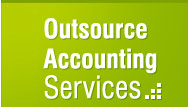 Records
Management
Records
Management
What is Records
Management?
"Records Management is a discipline which utilises an
administrative system to direct and control the creation, version
control, distribution, filing, retention, storage and disposal of
records, in a way that is administratively and legally sound, whilst at
the same time serving the operational needs of the business and
preserving an adequate historical record."
Records management: Five key points
Good Records Management practice:
- Helps you to do your job better: it supports ease and
efficiency of working because you can find the information you need,
when you need it.
- Protects you and the business: it provides evidence of
people's rights and entitlements, and shows what they did and why
they did it.
- Saves your time by ensuring you can find the information you need
easily.
- Reduces costs, particularly space costs, by ensuring you don't
keep any more records than you have to, and that you know when you
can delete or destroy them
- Gives you records you can rely on, both by helping you to find
the appropriate version and, by giving records a high value as
evidence if they are needed in a court of law.
Why should we bother with records management?
There are many benefits to be gained from implementing records
management. The business records management framework document
identifies the main benefits that the business hopes to gain by
introducing and improving records management practices. This page
describes some of those benefits in greater detail.
Business Benefits
Records management is a key driver in increasing organisational
efficiency and offers significant business benefits.
- Records management improves the use of staff time by reducing the
time spent looking for information. The reduction is achieved
because information can be retrieved quickly and reliably. A number
of organisations have tried to calculate how much staff time is
spent retrieving information. One estimate from a consultancy firm
is that 10% of administrative staff time is spent retrieving
information of one sort or another.
- Records management facilitates the sharing of information. This
enables staff to access the "collective memory" which
provides precedents for actions and should prevent the need to spend
time and resources "re-inventing the wheel". Better access
to information also improves decision-making.
- Records management reduces the unnecessary duplication of
information. By reducing the amount of unnecessary information held
it is easier for individuals to concentrate on managing the
necessary information for which they are responsible.
- Records management identifies how long records need to be kept
before they can be destroyed, and by doing so it reduces the costs
associated with retaining unnecessary information, such as storage
costs, server costs and costs associated with servicing information.
- Records management optimises the legal admissibility of our
records and by doing so will protects individuals and the business
from malicious litigation, as society becomes increasingly
litigious. Legal admissibility is optimised when we can demonstrate
the authenticity of our records. As electronic records are
increasingly becoming the "golden copy", and as records in
this format present special challenges it is important that proper
consideration is given to the legal admissibility of our records.
- Records management identifies how long records are needed and by
doing so identifies those records that are needed in the medium and
long term. When those records are held in electronic format it is
crucial that they are identified as soon as possible to protect them
from loss. Electronic records are increasingly difficult to access
over time because of hardware obsolescence, software updates and
storage media failure. Records management identifies those records
that need to be protected for future use and implements appropriate
protection methods.
- Records management supports risk management and business
continuity planning. Records management identifies which records are
vital to the running of the business and supports the business
continuity or disaster plan. A disaster plan helps not only to
reduce the risks of a disaster occurring but also ensures the
ongoing operation of the business continues if a disaster does
occur. 10 years ago, when the following statistics were compiled,
40% of organisations which suffered a disaster went out of business
within a year; 43% never re-opened and 29% ceased trading within 2
years; 93% of firms that had a major data processing disaster were
out of business within 5 years. These statistics demonstrate how
important records are to business continuity and why it is crucial
to identify which records need priority measures taken to protect
and recover them.
In short, records management improves control over our information
assets, which has benefits in freeing up staff time and other resources,
and will help protect individuals and the business from various risks.
Records management means that we don't have to "muddle through"
hoping that all will be well, for example by placing too much reliance
on the memories of a few individuals.





